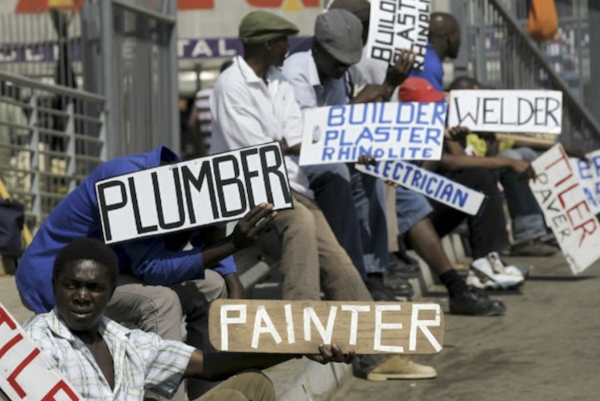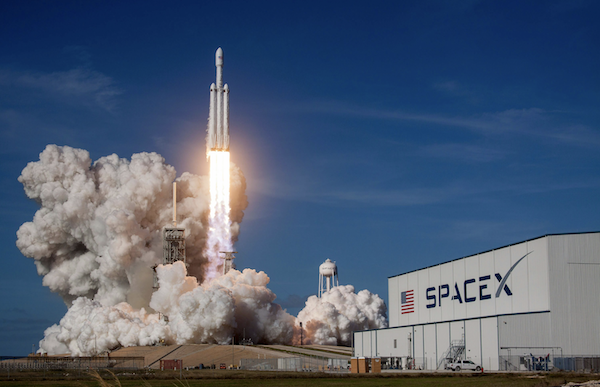Market scorecard
US markets finished in the green again yesterday, with the S&P 500 now just a whisker away from setting fresh all-time highs. As we like to tell clients, you want to be invested in something that keeps hitting new records, so take this as a buying signal.
In company news, Tesla (+5.7%) was back in the robotaxi spotlight, with Elon Musk and team sharing a slick video of a driverless ride through Austin. Elsewhere, Mark Zuckerberg is reportedly hand-picking an elite AI taskforce to chase artificial general intelligence, whatever that is. Finally, JM Smucker had a rough session (-15.6%), after warning that rising tariffs are brewing trouble for its coffee margins.
At the end of it all, the JSE All-share closed up 0.25%, the S&P 500 rose 0.55%, and the Nasdaq was 0.63% higher. Thank you very much.
Our 10c worth
One thing, from Paul

Byron gave some examples yesterday of great stocks that recovered from their losses in 2022 (Meta, Nvidia, Amazon) and are now trading near all-time highs.
One might conclude that all one has to do is hold on to shares that are going through a tough patch, and wait for them to come right.
The problem is that some stocks never recover, even if they are very prominent companies with brilliant brands. Citigroup fell to a fraction of its value in the financial crisis of 2008-09 and is still down at those levels now. Intel, Target and Estee Lauder got dumped 3 years ago and have not rebounded.
Michael Mauboussin analysed 6 500 stocks over a 40-year period from 1985 to 2024 and discovered the median drawdown was an astonishing 85%. 54% of these stocks never managed to recover their previous peak. The odds are against us!
Currently, some big names like UnitedHealth and Nike are battling. Their long-term outlook is unclear. We shall have to wait and see how they fare.
Byron's beats

I've written about some of the companies we recommend - particularly those sitting on large amounts of valuable data, that they use to build and train world-class AI technologies. It turns out that processing all that data is not easy.
Meta is in talks to buy a startup called Scale AI for a whopping $10 billion. They help businesses sort, label, and stress-test their data, which results in smarter models. Microsoft, OpenAI, the US government and Meta themselves are clients of Scale AI who are forecasting $2 billion in sales this year.
Scale AI was founded in San Francisco in 2016 by Alexandr Wang (27) and Lucy Guo (30). Lucy has a colourful past, after being fired from Scale AI she went on to found a few other tech start ups whilst becoming a social media star and notorious party girl. She apparently kept her shares in Scale AI and is now filthy rich.
Alexandr is still at the helm of Scale AI and reportedly owns 15% of the business. Good for them!
Michael's musings

Earlier this week, Business Day ran a story about Capitec's CEO, who said that South Africa's jobless rate could be as low as 10%. Suggesting that South Africa has a much lower unemployment rate than officially stated isn't new, but coming from someone who has good insights into the informal economy gives the argument more weight.
If South Africa truly had a 30 to 40% unemployment rate, depending on the definition used, we would have seen riots in the streets years ago. The problem is that it is very difficult to measure economic activity in the informal sector. People categorise themselves as unemployed, either because they don't want to share their data or out of ignorance.
Capitec has two trillion data points, and they know who spends money, where, when, the amount and the type of products and services bought. It allows them to paint a good picture of how money flows around the country.
Having a much bigger-than-expected informal sector is great news, and it should allow policy creators and business leaders to make better decisions. What we really need though is more people moving into the formal economy. That is where you find quality jobs, which allow for upward mobility.
Bright's banter

When Elon Musk founded SpaceX back in 2002, the dream was to build a sustainable human colony on Mars. While we're still very much Earth-bound 23 years later, SpaceX has evolved into something no one quite expected: the world's largest satellite internet company.
May was a record month for the firm, with 398 Starlink satellites launched, bringing the total number deployed to over 8 800, about 40% of all satellites ever launched since Sputnik in 1957.
Unlike traditional satellites that operate from higher altitudes, Starlink's low-Earth orbit network allows for faster, more responsive internet, making it ideal for remote locations or crisis zones like Ukraine. The service now supports over 5 million customers and brought in an estimated $6.6 billion in revenue last year.
That's no small feat for a business whose rockets still occasionally explode in spectacular fashion. But as Musk himself put it, Starlink is now paying for humanity's journey to Mars. SpaceX is valued at around $350 billion, and the road to the red planet will be paved with satellite subscriptions.
Linkfest, lap it up
Alzheimer's is a terrible disease. Between 1995 and 2021, over $42 billion was spent on research, with more than 140 failed trials - The tide in Alzheimer's research may be turning.
Encourage people around you when they do good. Get excited for your friends when they do unusual things - Root for your clan, reject jealousy, promote good vibes.
Signing off
Asian markets rose after two days of US-China trade negotiations in London. Mainland China and Hong Kong led the charge, climbing 0.9% and 1% respectively.
In local company news, FirstRand has received the green light from regulators to absorb HSBC's South African client base, banking assets, liabilities, and employees. The British-Asian multinational is packing up and exiting the local scene.
US equity futures are a bit lower pre-market. The Rand is becalmed at around R17.70 to the US Dollar.
Good luck to the Proteas at Lords today, let's see that fire!